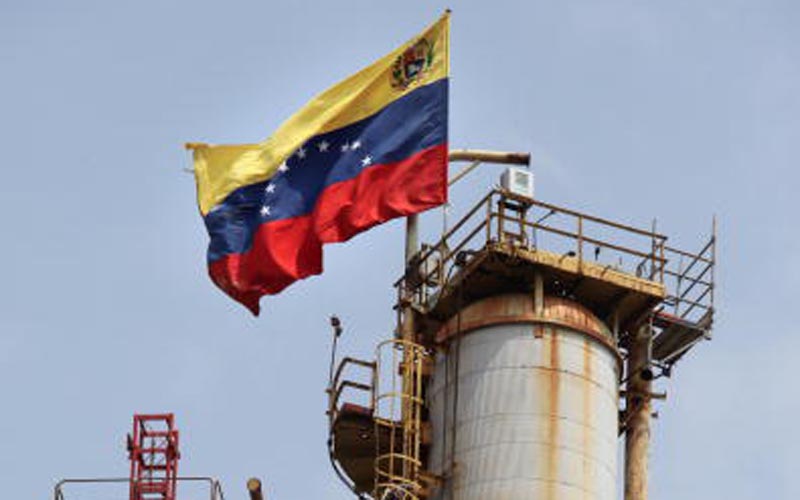 A U.S. court on Monday begins the final sale hearing of an auction of shares in the parent of Venezuela-owned refiner Citgo Petroleum to pay creditors, following heavy competition for the seventh largest U.S. refiner.
A U.S. court on Monday begins the final sale hearing of an auction of shares in the parent of Venezuela-owned refiner Citgo Petroleum to pay creditors, following heavy competition for the seventh largest U.S. refiner.
A court officer overseeing the auction in August changed his recommendation of winner to a $5.9 billion offer by an affiliate of hedge fund Elliott Investment Management, following a bidding war. He had previously recommended a $7.4 billion offer by a unit of Toronto-listed miner Gold Reserve.
The change has triggered objections and intensified a fight between creditors and bondholders in pursuit of the same assets. The court will listen to all parties, witnesses and experts through Thursday before deciding on the auction’s winner.
The auction stems from an eight-year-old case that Canadian miner Crystallex initiated in Delaware against Venezuela. The court found Citgo’s parent, PDV Holding, liable for Venezuela’s debts and past expropriations, paving the way for over a dozen other creditors to pursue compensation of nearly $19 billion.
The bidding round initiated this year is expected to be completed soon once Judge Leonard Stark approves a winner, following a string of delays.
Elliott’s affiliate Amber Energy and Gold Reserve’s subsidiary Dalinar Energy have competed neck and neck in recent months, improving their bids ahead of the hearing. Commodities house Vitol, an affiliate of Contrarian Funds and a consortium led by Black Lion Capital Advisors also competed.
Frontrunner Amber Energy proposes to fully pay nine of the case’s 15 claimants, compared with the 12 claimants that the Gold Reserve group would compensate.
But Amber also offered to pay $2.1 billion to holders of a defaulted Venezuelan bond collateralized with Citgo equity to settle a key claim and remove an obstacle from its route to a takeover of Citgo.
Gold Reserve and a handful of creditors oppose an immediate payment to the holders, arguing that a separate New York case over the bonds’ validity has not been resolved and the payment would deprive some claimants in Delaware of proceeds.
How big a loss could this be for Venezuela?
If Venezuela, which owns 100% of the refiner and its U.S.-based parent companies, fails to retain some equity, it would lose its most significant overseas asset. The country, with foreign debt reaching $150 billion, has already lost other assets in Europe and Asia to creditors.
Judge Stark has left open a possibility for parties representing Venezuela to submit an offer. But they would need to secure backing from politicians in both Caracas and Washington, a challenge given U.S. sanctions on the OPEC nation and otherwise strained ties.
If court procedures progress as planned, the earliest takeover of Citgo would happen in the second quarter next year, said Horacio Medina, head of a Venezuelan board supervising the refiner, in a conference on Friday.
Prior to the sanctions, Citgo’s 807,000-barrel-per-day refining network was a primary processor of Venezuela’s heavy sour crudes. Since Citgo in 2019 cut ties with its ultimate parent, Caracas-based state company PDVSA, Venezuela has struggled to find new markets for its oil, while the Houston-based refiner has resorted to other crude suppliers.
Venezuela’s opposition, which through its Congress majority in 2019 appointed the boards that now supervise the refiner, has worked for years to retain Citgo, including funding legal defenses and lobbying in Washington. The U.S. Treasury Department, which has shielded Citgo from creditors in recent years, must approve the auction’s eventual winner.
Opponents of Venezuelan President Nicolas Maduro have said Citgo could aid the nation’s economic recovery if democracy is restored. Maduro’s officials have rejected U.S. sanctions and called the auction the theft of a sovereign asset.
Can creditors claim post-auction compensation?
Yes. Many creditors including ConocoPhillips, which holds the largest claims of almost $12 billion, and Gold Reserve, have pursued legal action outside of the U.S. to seize Venezuela-owned assets, from bank accounts to PDVSA-controlled facilities.
The creditors, who rejected the outcome of a bidding round last year due to conditions imposed by the winner, Amber Energy, can submit objections if dissatisfied with its results.
They and other creditors outside Delaware can also continue parallel cases in other U.S. courts, which so far have not significantly progressed to enforce claims or prove that PDVSA’s U.S. subsidiaries should be liable for Venezuela’s debts, a necessary step to pursue Citgo’s assets.
Accumulating legal costs and uncertain recovery prospects led three of the 18 creditors originally cleared by the court to withdraw. Others did not fulfill all court requirements to participate.
Will all creditors be compensated?
Unlikely. Citgo was valued in up to $13 billion as part of the Delaware case, but the total value of offers in all bidding rounds has remained below $11 billion.
The refiner’s profit plummeted to $305 million last year from $2 billion in 2023. Following two consecutive quarters of loss, Citgo returned to profit in the second quarter.
These factors suggest that a portion of the 15 registered creditors, collectively claiming $18.9 billion, may not receive distributions from the auction.
(Reporting by Marianna Parraga; Editing by Christian Plumb and Marguerita Choy)